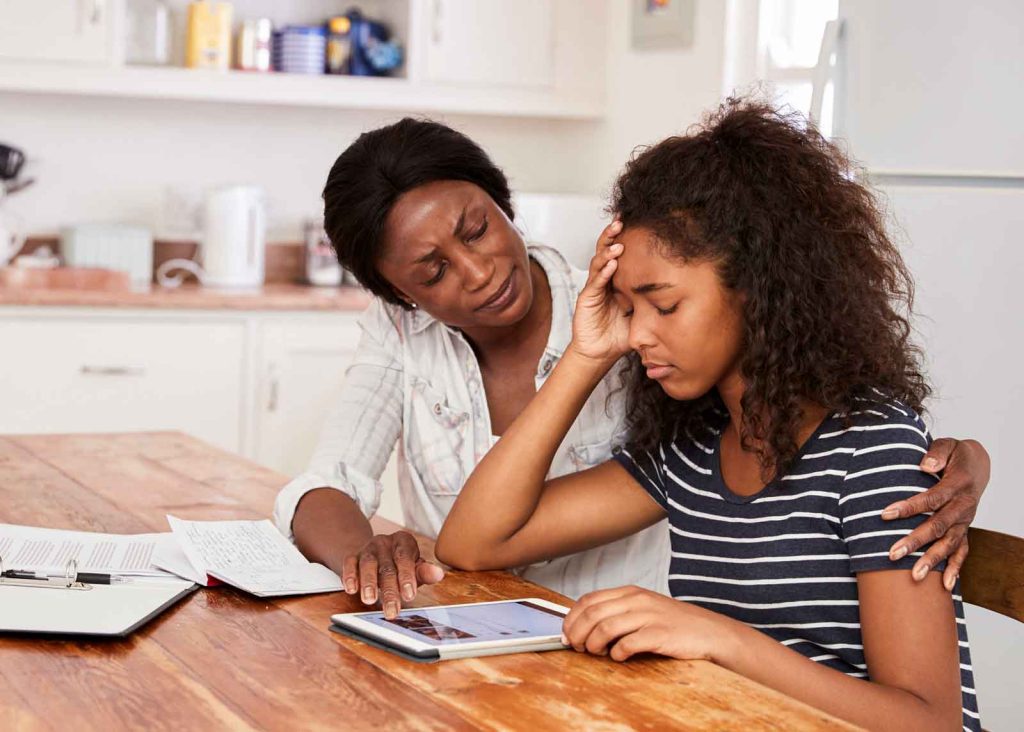You may notice and react to stress in your family, from those around then and your own stress. It is important to recognize stress and get help with healthy coping strategies. The strategies you learn often stay with you into adulthood.
Generally, anything that may cause you fear and anxiety can cause stress. This can include being away from home, starting a new school or moving to a new location, being separated from parents or caregivers, worrying about school, and getting along with others, worrying about your changing body, and worrying about the future.
Everyone has those up and down days and that is completely normal. You may not wake up happy every day. Some days may be tougher than others.
How do you know if what you are feeling is stress? Here are some symptoms that you may be experiencing:
- You feel angry
- Disappointed or feel as tough your “bubble has been broken”
- You don’t trust the world
- You have low self-esteem
- You may have stomach aches and headaches
- You are having panic attacks
- You feel defiant or disobedient

Helping with stress
An adult in your life can help you deal with stress in many ways. Two ways are creating a low-stress environment and helping you develop positive coping skills.
This can be done by:
- Having your feelings acknowledged – that they understand why you feel scared or sad.
- Recognize that mistakes are learning experiences.
- Adults need to be supportive and listen to your concerns. You should try to solve your problems on your own with the help and support of an adult you trust.
- An adult should show you care, warmth, and love.
- You need clear expectations without being overly rigid outlined for you.
- Emphasis on cooperation over competition.
- Do not over-schedule yourself with too many activities.
- Find ways to contribute to the family.
- Build on the strengths of the family.
